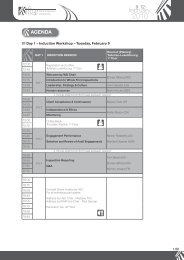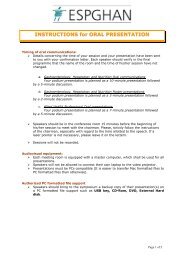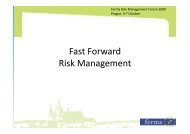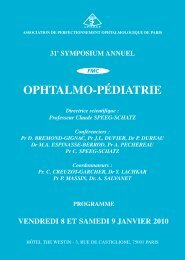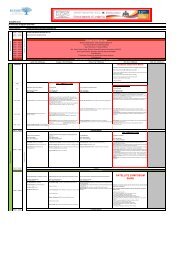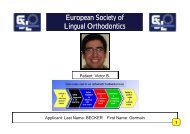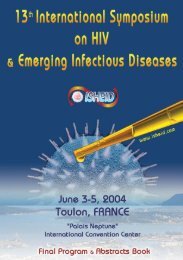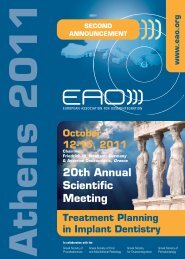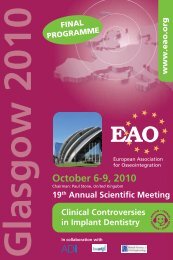final program.qxd - Parallels Plesk Panel
final program.qxd - Parallels Plesk Panel
final program.qxd - Parallels Plesk Panel
Create successful ePaper yourself
Turn your PDF publications into a flip-book with our unique Google optimized e-Paper software.
PP 6.17<br />
Community-acquired septicemic pneumonia caused by a multiresistant<br />
Staphylococcus aureus strain, resulting in multiple organ involvement exacerbated<br />
by extensive immune activation<br />
Roberto Manfredi, Sergio Sabbatani<br />
Infectious Diseases, University of Bologna, Italy<br />
Introduction<br />
Antibiotic-resistant gram-positive cocci are of increasing concern, and immune activation<br />
promped by microbial products (bacterial superantigens) may play a major role in the<br />
pathogenesis of disseminated, life-threatening Staphylococcus aureus infection.<br />
Patient and Methods<br />
An exceptional case report of community-acquired, severe infection caused by a<br />
methicillin-resistant S. aureus strain,responsible for pneumonia, septic shock, and<br />
scattered septic embolism, and accompanied by diffuse polyvisceritis and thrombophlebitis<br />
as signs of an extensive immune system activation, was seen in a otherwise healthy<br />
40-year-old man.<br />
Results<br />
The striking features of S. aureus polyvisceral disease (pneumonia, septicemia, and<br />
pulmonary and hepato-splenic septic embolism), were associated with multiple<br />
immune-mediated focal manifestations (massive pleuric-pericardial effusion, mycocarditis,<br />
and multiple lower limb thrombophlebitis). In vitro resistance to all beta-lactams,<br />
fluoroquinolones, macrolides, and aminoglycosides, apparently did not justify the<br />
clinical-microbiological failure of a glycopeptide-based combination therapy. Only the<br />
administration of combined linezolid-rifampicin-tetracycline together with intensive care<br />
support, achieved a slowly progressive ameliorement, while the polyvisceritis (associated<br />
by an immune-activation syndrome documented by increased CD4+, CD34+, and CD4-<br />
CD8- T-lymphocyte subsets), caused dysreactive disease at multiple body sites, and<br />
required a prolonged high-dose steroid therapy. A complete clinical, laboratory, and<br />
instrumental recovery was reached only three months after admission.<br />
Conclusions<br />
This report raises multiple questions about the epidemiology, pathogenesis, clinical<br />
presentation and manifestations, and management of complicated S. aureus infection,<br />
with special focus on the immune system activation possibly triggered by microbial<br />
antigens, and the therapeutic role of steroids and novel antibiotics targeted against<br />
resistant gram-positive cocci.<br />
“ Focusing FIRST on PEOPLE “ 234 w w w . i s h e i d . c o m




